|
We gathered around a table in the upstairs part of Grit Coffee. Though there weren't very many of us, the intimate setting made it easier to relax and enjoy the spoken word poet Andrew Lustig. He performed a few poems expressing his feelings for Israel: love, reverence, fear, anxiety. After sharing one of his poems, called "I Am," he encouraged us to write for a few minutes about our feelings for Israel with the goal of imitating his style of poetry. We all wrote a few lines about our own experiences, and then took turns reading a line at a time, forming a new poem that represented our collective view of Israel. We discussed a little bit about our own experiences and tried to determine why we felt the way we did about Israel. Though we all have different opinions of Israel, of its politics and conflicts and leaders, everyone present was willing to be open and to share views with the rest of the group. All in all, it was a very meaningful and inspirational evening of poetry, creativity, and camaraderie.
--Wittney Skigen Class of 2019 I was really looking forward to this event because I am very passionate about Israel, and I thought this would be a good outlet for those emotions I have been experiencing over the last month or so with everything that has been happening in Israel. When I walked into Grit Coffee and saw the poet, I realized that he, Andrew Lustig, is the same person whose video I watched on YouTube all those years ago that gave me goosebumps and put tears in my eyes. After introductions, he began to recite some of his work for us. It was all so moving, so emotional, and hit so close to home for me. Lustig talked about different experiences in Israel, different opinions he has had himself and has heard from others, and his overall thoughts about the constant strife in the Middle East. I have always admired poets; the way they string words together to make them sound like music, the way they recite their work so passionately and effortlessly at the same time, the way they truly make words into art and have such fervent meaning behind them. It was really amazing hearing Lustig's pieces and getting to discuss them with him in such a private setting. Then we went on to an exercise where we all wrote anything on our minds about Israel; he encouraged us to write in a repetitive, one line fashion, and said we would be sharing afterwards. We went on to do an exercise where we strung all of our lines together to create one cohesive poem. I really enjoyed this event a lot. It was a great break from the world of studying and classes and gave us all an hour or so to talk about something that truly matters to us: Israel. --Talia Sion Class of 2018
Finally, at 7 a.m., 25 minutes before the sun actually rose we made it to the rock, accompanied by another group and two dogs. We bundled up under blankets, and watched the sun rise. We ended the hike with muffins and icebreakers, even though the wind was still strong, and it wasn’t getting any warmer outside. Nevertheless, it was a positive experience over all. As FYC Co-Chair, it was a treat to experience some of the first years’ first Humpback Hike. No matter how early it might be or how miserable the weather might be, watching a beautiful sunrise with good company is an experience you don’t want to pass up.
-- Alex Nebel FYC Co-Chair and Class of 2018
We compared the concept of God to life and how we should love life just as we are commanded to love God. We also discussed how we must pass these traditions onto our children and spread them to each new place we enter. Each group member shared her own experiences with mezuzahs, which evolved into a conversation about our unique ways of practicing and celebrating Judaism in our daily lives. We also compared how the Jewish concept of home is similar to the ways that sororities strive to create a home for each of its members, including the idea of reaching out to others and making them feel included and important. Participating in this discussion made me think about the role Judaism plays in my daily life and interactions with others, whether I realize it or not. I enjoyed hearing how other group members expressed their Jewish values and affirming that even if our expressions are varied, they are all still well-founded. At the end, we were given our own mezuzahs to take home and had the opportunity to write our own prayers or thoughts to place inside. I have hung mine on the door to my room and love having this constant reminder of the positive role Judaism plays in my life inside of my home. If you have the chance to attend one of these discussions, definitely do!
-- Amy Singer Class of 2018 While talking with students, Pinkas covered plenty of the areas he has experience in-- including motivating the populous to accept environmentally motivated initiatives, working within a governmental structure to bring big picture issues to the forefront, and utilizing divesture to achieve environmental goals. The topics were applicable not only to Israel, but also to America and the entire world. The opportunity to hear from the man voted one of Israel's 100 Most Influential People on his work and passion was truly remarkable.
-- Otto Warmbier Class of 2017
In my role as Arts & Culture Engagement Intern, I chose to organize a program that blended art and Jewish history. I wanted to give all UVA students a chance to hear first-hand about what it was like to live through the Holocaust as a Jew. A lot of people have not had the opportunity to do so, and I believe that it is an important talk for everyone to hear. It is a very unique and rare chance that we are able to talk with a Holocaust survivor, and we should take advantage of this opportunity while we have it. It was so rewarding to see UVA students with all different backgrounds and majors to come out to this inspiring event.
-- Rachel Mayman Class of 2018
The retreat focused on telling our individual Israel histories, our stories. Each participant had the opportunity to share his or her experiences regarding Israel, whether it was anecdotes, personal opinions or political views. All of this occurred in a respectful space where all opinions were tolerated. This is where all of our personal views met each other and helped morph and form one another. Instead of the typical heated debates, we learned through sharing our personal, unique opinions. We learned that we were not expected to blindly love Israel, but instead we could “hug and wrestle” with Israel. In fact, the reason why we wrestle with Israel is because we love it.
The retreat also taught us how to engage in productive conversations back on grounds. The leaders gave us the tools to be respectful yet impactful when discussing Israel with others on Grounds. We considered how can we portray our “hug and wrestle” stories to other UVa students, faculty and administrators? How can we tell people that we love something, yet struggle with it as well? How can we tell them that the reason we struggle with something is because we love it? And, how can we tell people that, although something may be flawed, it still deserves to BE? This is what the Hillel Israel Retreat of 2015 taught me to do, or at least helped me figure out the steps of how to do it. Back on grounds I now wonder, how will we exhibit what we learned at the retreat? We will create constructive dialogue and move carefully and productively. The best way to continue to learn about Israel is to keep on telling our “hug and wrestle” stories. -Jay Epstein WaJew Class of 2017
In years past, only JLC has been present at the Leadership retreat; however, this year the Engagement Interns were invited, as well. During the weekend, the two groups talked about how the members can work together to support each other and build a greater sense of Jewish community.
I am one of seven Engagement Interns. The role of an Engagement Intern is to create and enhance programs on Grounds for Jewish students that ultimately connect them to the Jewish community in a way that is personally meaningful. The interns are broken up into four smaller groups to target specific communities: Greek Life, Arts and Culture, Social Justice, and Birthright. As one of the Birthright Interns, I help with Birthright recruitment this winter and plan follow-up programs that further connection following the trip to Israel. The retreat was an opportunity for brainstorming programs for the school year. It was a valuable experience for me to learn more about my position and expectations. It was also a chance to outline goals for engaging students in Jewish life on grounds. I am excited to begin my role as an Engagement Intern and get to know more Jewish students at UVa. I also cannot wait to have a hand in planning a fantastic Birthright trip to Israel this winter! -- Jordan Fingerhut WaJew Class of 2018
At Passover, Otto Warmbier and I aimed to make the environment a topic of Jewish conversation. What are the ten plagues of climate change? How can washing our hands remind us of the importance of water conservation? Throughout the Seder, we asked participants to reflect on how the story of the Exodus and the Seder traditions relate to environmental challenges.
In my opinion, Judaism doesn't care what you say if you do not act accordingly. We could not talk about sustainability at a Passover Seder without trying to make the Seder more environmentally-friendly. Since the food was already set, we turned to the materials present at the dinner. For the Seder, we ordered compostable cups, cutlery, and plates, and coordinated with a local compost company to provide bins for disposal.When we throw things in the trash, they just sit in landfills for years, decomposing slowly and creating pollution problems for neighboring towns. We compost and recycle to divert waste away from landfills. This way, it goes on to be useful again. Education is the most important piece of a "zero waste" (only compostable and recyclable materials) practice. If no one knows what to put where or they are unaware of the impacts of their actions, then the idea is not sustainable. Clear signage and an announcement at the beginning of the Seder helped to engage people and to empower them to dispose of their waste properly. The dinner was a success, but what we are most excited for is making "zero waste" and sustainability a bigger part of what we do at Hillel. Next year, we hope to have compost at Shabbat every week and will work to expand recycling at Hillel. With environmental problems, we can rarely say, "dayeinu". There is always more that we can do to promote sustainability and to decrease our impact on the environment. - Lia Cattaneo, Peer Network Engagement Intern Class of 2016
From Israeli-Americans like myself to those of us who have just begun learning about the conflict, everyone who came out to D.C. was able to personally engage with Israel in new ways. I found it empowering to listen to some of the people directly involved in the peace process. I heard politicians speaking candidly in small settings about their obstacles to progress from their own perspectives. Hearing from Israeli and Palestinian parents who have lost their children to the violence of conflict also brought home the seriousness and urgency of our work.
The speakers, panels, and conversations from our two days at the conference also gave us a first-hand understanding of how diverse the pro-Peace camp really is. As expected, I met a lot of Jews my age that grew up caring and learning about Israel through family, school, and visits, but I was surprised to also see so many Christian, Muslim, and Latino students who had learned about the conflict more recently, as well. One student I have come to know personally is a first generation Pakistani-American from Maryland who first studied the conflict in high school. She has since studied abroad in Jerusalem, traveled throughout Israel and the West Bank, and become a leader on J Street U’s National Student Board. At the conference she gave an impassioned speech about urging attendees to take ownership of our future by working towards a two-state solution. Bringing back my experiences at the conference to grounds, I hope that J Street UVa can play a role in fostering constructive spaces for engaging with Israel. We want to give students from various backgrounds the chance to grapple with the complex moral issues and political realities in Israel. It is my hope that the Jewish, Palestinian, and the broader UVa community will join our efforts to combat apathy and promote productive action while maintaining a respectful environment. - Ori Shimony
Four years later, Shabbat 300 is still a roaring success. Several groups help make this night possible: The Jewish Leadership Council helps recruit the 300 participants and spends hours setting up the food. Hillel staff members handle logistics and spend hours purchasing food, utensils, drinks, and more. Channah Meyere, with Chabad at UVA, spends weeks preparing and cooking all of the food in her home. This year, we also recruited the brothers of Alpha Epsilon Pi to help serve dinner. The cooperation among all of these groups made the night possible.
This year’s Shabbat 300 was bittersweet for me. I can’t believe I’ve come to see four Shabbat 300s now, and that I may not be here next year for the 5th Annual. (But who knows, maybe I’ll make a guest appearance...) Shabbat 300 is now a staple at the University. Faculty and students look forward to this event for the entire year. This year’s dinner was a perfect reminder of how strong the Jewish community is at UVA, and how it has grown stronger since my 1st year. Jewish life has played a huge part of my college experience, and I am so grateful for events like Shabbat 300 to remind me how lucky I am. Pausing to look around the room during each year’s Shabbat 300 is one of my favorite memories as a WaJew. It’s been so special for me to see the event grow and succeed throughout the past years. I hope to come back in future years to Shabbat 400 or 500 – of course, we would need to find a new space since Newcomb Ballroom only seats 300! Wajewwa! Sheryl Greene Chair of the Jewish Leadership Council Class of 2015 |
The Brody Jewish Center, Hillel at the University of Virginia, is the focal point in a renaissance of Jewish life for the 1,000 Jewish students on Grounds. Archives
September 2021
Categories
All
|
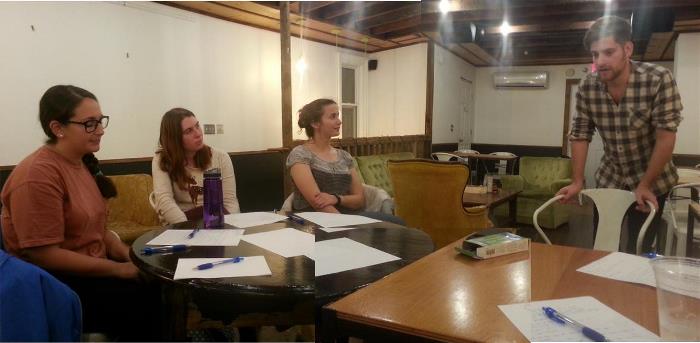
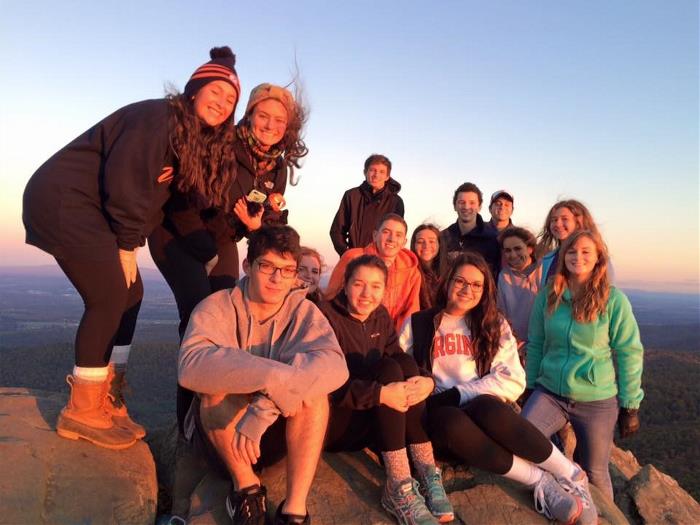
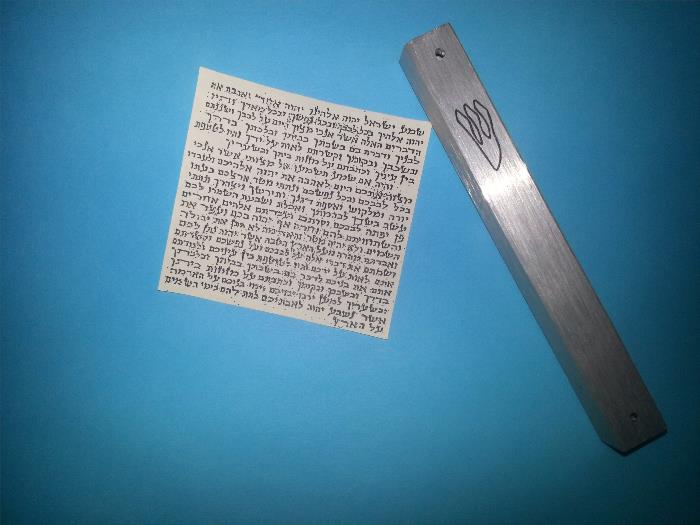
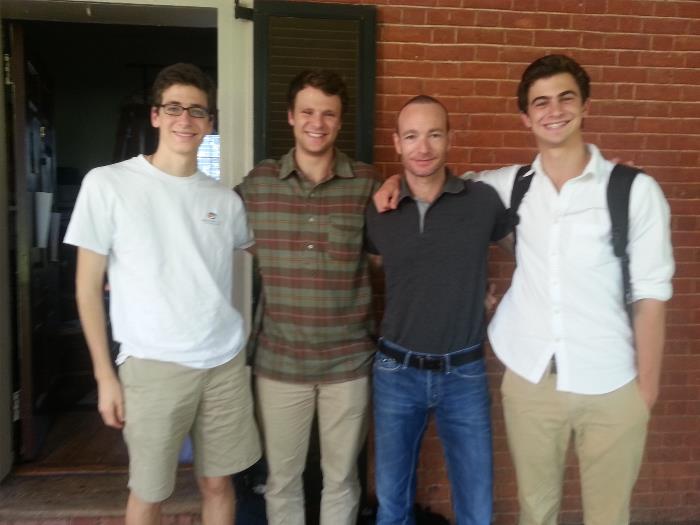
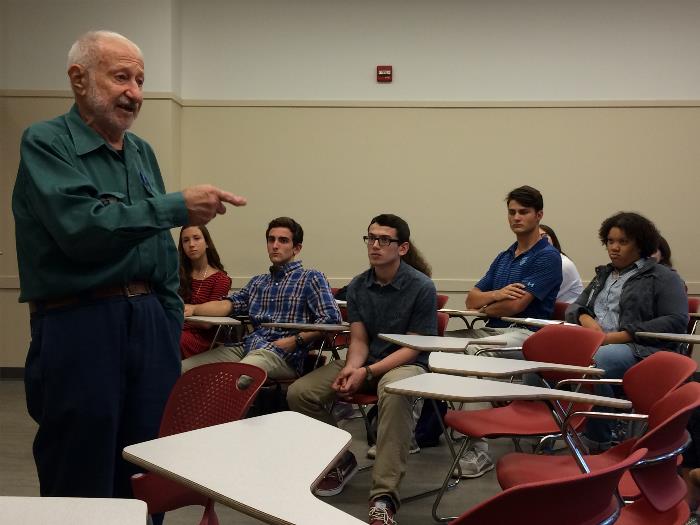
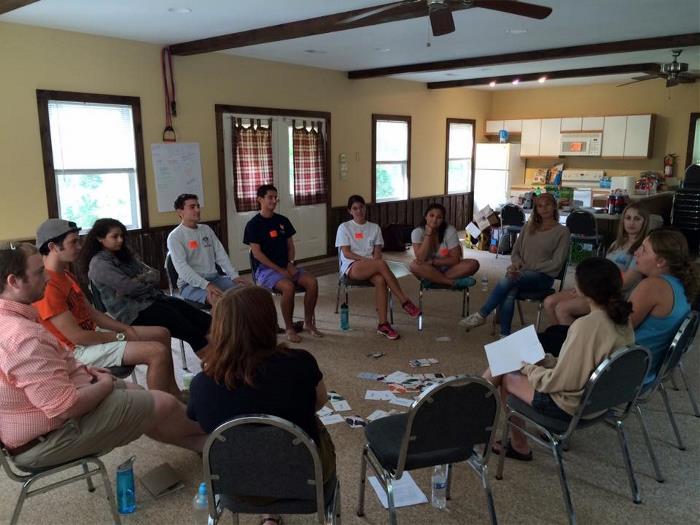
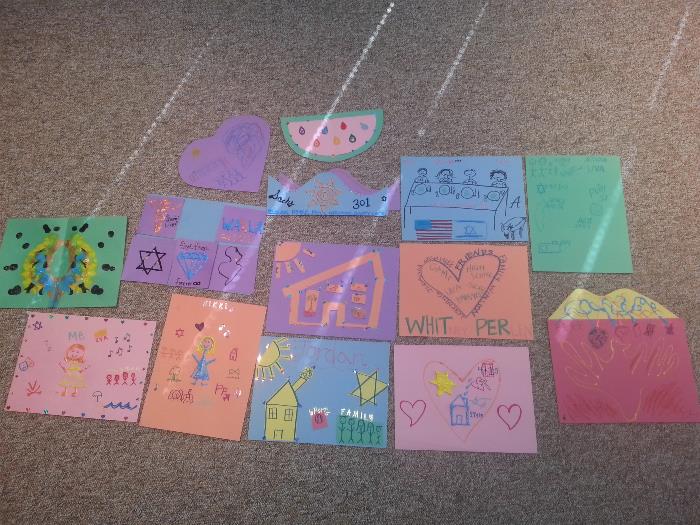
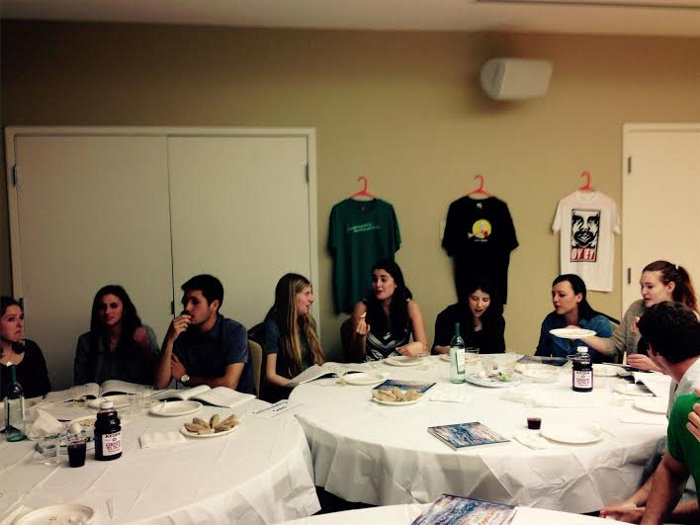
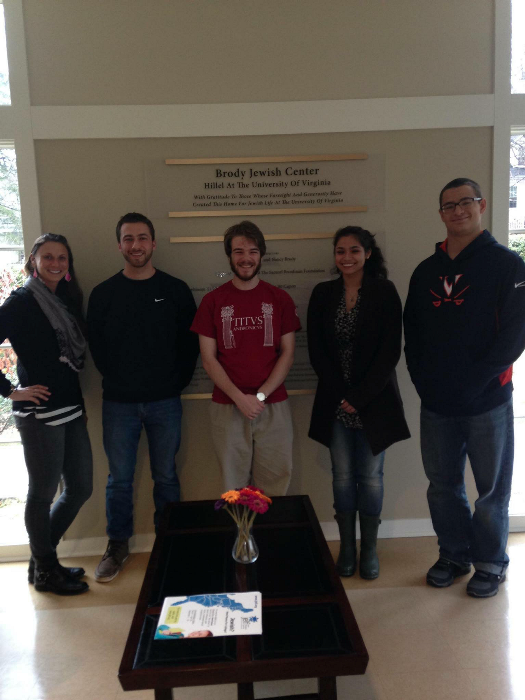
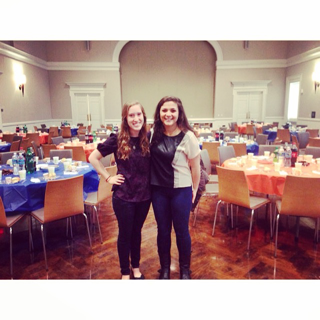
 RSS Feed
RSS Feed